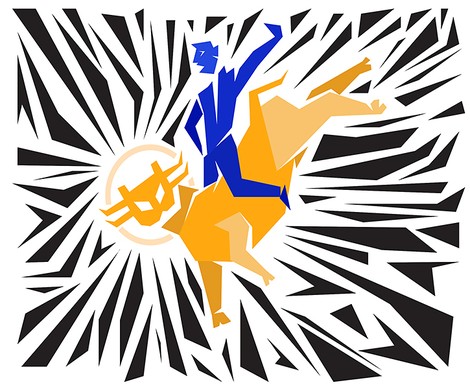Your podcast discovery platform
Curious minds select the most fascinating podcasts from around the world. Discover hand-piqd audio recommendations on your favorite topics.

piqer for: Global finds Technology and society Globalization and politics
Elvia Wilk is a writer and editor living in New York and Berlin, covering art, architecture, urbanism, and technology. She contributes to publications like Frieze, Artforum, e-flux, die Zeit, the Architectural Review, and Metropolis. She's currently a contributing editor at e-flux Journal and Rhizome.
Cyberlibertarianism And The Crypto Imaginary
In this article, Jason Arias investigates the relationship between one realm of digital technology—bitcoin and the blockchain systems that allow it—and political inclinations like libertarianism premised on “technologically based” freedom. Arias finds a distinct similarity between the cultural wild-west imaginary of crypto-freedom with early “American frontier” mythology.
Cyberlibertarianism is one word to describe this mythos and worldview. A term and movement that arose in the 1980s, cyberlibertarians think that “freedom will emerge inherently from the increasing development of digital technology”. This, according to David Golumbia, the author of a book called The Politics of Bitcoin, which explores the ideological underpinnings and offshoots of cryptocurrency communities.
Encryption to shield oneself from surveillance and democratization of information have been proclaimed as rights for the digital age—but have also been taken as an ideological necessity for cyberlibertarians, who suspect that once traditional modes of governance collapse and everyone is on their own, this will be a matter of survival.
“Bitcoin is a speculation. Its proponents have made a big bet that the concept of the nation-state will soon go up in flames.”
Further, these notions are tinged with moral righteousness:
“In the perverse future of which these speculators dream, Bitcoin is the only money, and the wealthiest will be those who bought in early and held out through the dark times. The geek-Übermensch […] will reign.”
